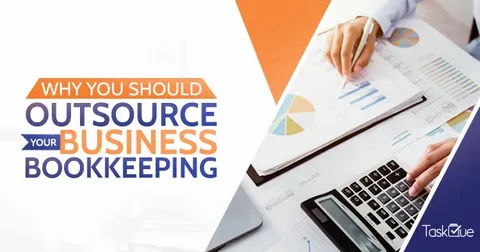Many small business owners feel overwhelmed trying to keep up with bookkeeping tasks while also running daily operations. Time spent on invoices, expense tracking, payroll, and compliance often pulls focus away from growing the business. That’s why outsourcing accounting services for small businesses is becoming an increasingly popular strategy. A specialized provider handles financial record-keeping, which frees up the entrepreneur to concentrate on sales, product development, or customer service.
Especially in the UK market, where tax laws, VAT rules, and reporting standards can be complex, engaging professionals who understand those requirements delivers real value. Outsourced services tend to cost less than hiring full-time staff, especially when you factor in salaries, benefits, and training. Small businesses can access expertise at a fraction of the cost, ensuring accuracy and avoiding costly penalties.
Providers like Finex Outsourcing often offer flexible plans tailored to different levels of need, making outsourcing accounting services for small businesses a practically risk-free endeavor. When small enterprises adopt these solutions, they can scale services up or down depending on cash flow or seasonal demands. The following sections examine how to choose an affordable and effective outsourced bookkeeping partner, how to evaluate what a business truly needs, which features can save money, and key questions to ask before making a decision.
Assess Business Needs Before Outsourcing
Determining the precise scope of bookkeeping tasks is vital. Small businesses should begin by mapping out:
- Which tasks need regular attention – invoicing, expenses, payroll, bank reconciliation
- Frequency of reporting – weekly cash flow updates, monthly summaries, year-end statements
- Industry-specific requirements – for example, if they trade goods or services, require VAT registration, or face special regulatory oversight.
Understanding these needs helps shape budget expectations and ensures that any outsourcing accounting services provider for small businesses delivers precisely what is needed, without more or less.
Compare Providers Based on Cost and Value
To find affordable solutions that work, striking a balance between cost and quality is crucial. Key factors to evaluate include:
- Pricing models – fixed monthly fee, hourly rates, or per-task billing
- Transparency – whether there are hidden costs for extra reports, consultations
- Turnaround times – how quickly tasks are completed, especially for essential items like tax returns or payroll
- Communication channels – whether support is available via phone, email, or video calls
Using providers like Finex Outsourcing, small businesses can find plans that combine core bookkeeping with optional add-ons. This makes outsourcing accounting services for small businesses more accessible, as it allows companies to avoid paying for unnecessary services.
Focus on Technology and Secure Systems
Efficient bookkeeping relies on technology. Key elements to look for in a good outsourced partner include:
- Use of cloud platforms for bookkeeping, invoicing, and expense tracking
- Automation options reduce repetitive tasks.
- Secure data handling practices, meeting regulatory standards for data protection
When small firms employ providers with modern tools, time is saved, human error is minimized, and compliance is maintained. The outsourcing partner must demonstrate a strong familiarity with UK regulations concerning data protection and financial operations.
Evaluate Expertise and Local Knowledge
Even when bookkeeping work is outsourced overseas, it helps UK small businesses if the provider understands the UK financial environment. Local expertise matters for things like:
- VAT obligations
- Payroll regulations
- Tax filing schedules with HMRC
A provider who has experience handling UK small businesses will ensure accuracy and avoid costly missteps. That is why looking for firms where local knowledge is prominent is part of avoiding surprises. Outsourcing accounting services to small businesses that understand UK-specific rules leads to smoother operations.
Read More: Why You Should Outsource Bookkeeping for Small Business Success
How to Keep Outsourced Services Affordable
To make sure costs stay reasonable without sacrificing quality, small businesses can do the following:
- Bundle services – combine bookkeeping, payroll, and report generation with one provider
- Maintain good internal records so the outsourced partner spends less time on clean-up.
- Limit scope – start with essential tasks, then expand as the business grows.ws
- Use a periodic audit or oversight to verify accuracy.
Finite investments in well-defined services tend to produce better financial returns over time, making outsourced bookkeeping a wise investment.
Final Thoughts:
Choosing to outsource accounting services for small businesses offers affordability, flexibility, and access to expertise that would be hard to maintain in-house. Small businesses in the UK benefit when they clearly define their needs, evaluate providers based on cost and local regulations, and choose partners with strong technology and secure systems.
Firms like Finex Outsourcing offer solutions that adapt to small business budgets while ensuring compliance and quality. The goal is to find a partner who saves time, reduces risk, and allows the small business owner to focus on growing operations. Affordable outsourced bookkeeping can be a pillar of success.
FAQs:
- How does outsourcing bookkeeping compare with hiring in-house staff?
Outsourcing often costs less because it eliminates expenses such as salaries, benefits, and training. It also offers flexible scaling, whereas hiring in-house ties costs more permanently. - Can small businesses maintain control when using outsourced services?
Yes. Clear communication, periodic reviews, and defined scopes let businesses retain control. The provider performs the work, but the company should remain involved in decision-making and oversight. - Is there risk in outsourcing financial data?
There is a risk if providers lack secure systems or knowledge of compliance. That’s why choosing partners that follow UK data protection and reliable security practices is essential. - What should small businesses expect to pay for outsourced bookkeeping?
Costs vary depending on complexity. For basic tasks like invoices and bank reconciliations, expect lower fees. More complex needs, such as payroll, VAT filing, or cash flow forecasting, incur higher costs. Transparent pricing models help avoid surprises.

